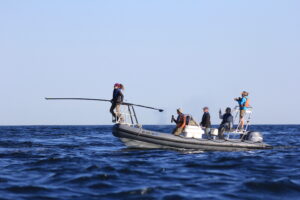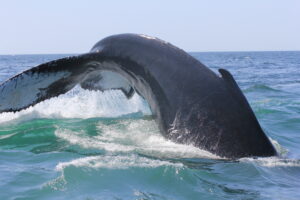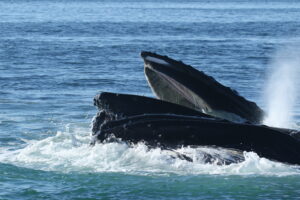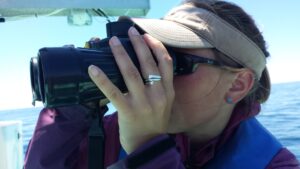"Humpback whale, Megaptera novaeangliae, feeding dynamics from the perspective of the individual: Insights from demography, life history, and bio-logging"
A Thesis Defense by Jennifer Tackaberry
MLML Live-Stream | May 17, 2021 at 11 am
Thesis Abstract:
In fission-fusion societies, individuals do not need to conform to a social structure in which their demographic or relatedness dictates their behavioral state or associations. Therefore, studies of fission-fusion societies provide a framework in which to compare the feeding dynamics across demographics unrestrained by stable associations. This study used bio-logger data and surface observations combined with long-term population data from the Gulf of Maine humpback whale, Megaptera novaeangliae, population to better understand the influence of demographics on feeding methods, time spent feeding and determine if a coordinated feeding method, kick-feeding, was a cooperative behavior. The results suggest that demographics did influence the feeding method used and highlighted the need to determine how energetic needs change across the feeding season. The results suggest that kick-feeding was not a form of cooperation. In contrast, demographics and the broader population structure did influence the roles that individuals filled in kick-feeding dyads. Additionally, females’ extensive use of bottom-feeding, compared to males, suggests that different energetic requirements influence the feeding methods used. Preferential use of the lower water column by mother-calf pairs and pregnant females should be considered in future studies about anthropogenic threats.
Images taken under NOAA permit #981-1707, 775-1875, 605-1607, 605-1904, and 18059






